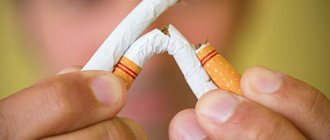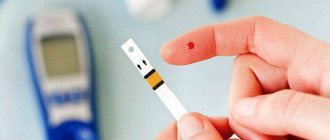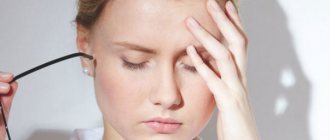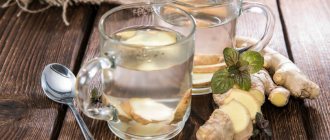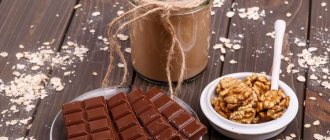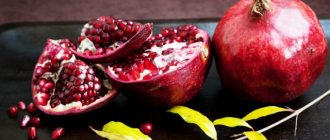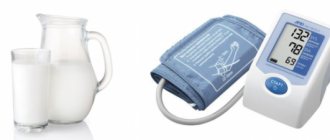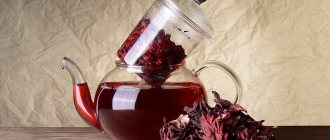Decrease in the concentration of vasodilators and increase in vasoconstrictors
An imbalance of specific endogenous vasoconstrictors - angiotensin II, endothelin-1 and norepinephrine and nitric oxide (NO) - plays an important role in the development of alcoholic hypertension.
Ethyl alcohol stimulates the release of endothelin 1 and 2 from the vascular endothelium in a dose-dependent manner. Alcohol also increases the level of angiotensin II in the blood and blood vessels. It is known that endothelin 1 and 2, as well as angiotensin II, are powerful vasoconstrictors. Angiotensin II stimulates the production of superoxide through the AT1 receptor, activating NADPH oxidase in the vascular wall.
Superoxide release through activation of NADPH oxidase has been demonstrated in hypertensive rats following administration of angiotensin II. Chronic ethanol consumption causes hypertension, which correlates with increased tissue angiotensin II levels and activation of NADPH oxidase.
It is possible that alcohol intake increases blood pressure by decreasing the concentration of vasodilators (nitric oxide) in the vascular endothelium, either due to inhibition of endothelial NO synthase or inflammatory/oxidative damage to the endothelium.
Alcohol and its effect on blood pressure
Ethanol, entering the blood, triggers a series of biochemical reactions. Their effects on the body vary depending on:
- volume of alcohol consumed, type of drink;
- individual characteristics of the body, health status;
- presence of alcohol dependence;
- age.
Initially, the first dose of alcohol lowers vascular tone. They expand and become more elastic. Blood pressure decreases slightly. The heart rate increases, but the blood does not speed up. This factor affects the fall in blood pressure. This continues until the opposite happens - the vessels sharply narrow. The reason for this change is the concentration of ethanol in the blood: the nervous system “strains”, begins to work actively, and the production of adrenaline increases significantly.
To prevent the negative impact of alcoholic beverages on human health, it is necessary to strictly adhere to the norm of alcohol consumption. It is individual for everyone. There are specific numbers recommended by the medical community. Medical doctors remind that they are valid for a healthy body.
Is it possible to give approximate forecasts?
Strictly speaking, it won’t be possible to do it any other way, as was already explained above, but approximate forecasts can indeed be given.
If we assume that after leaving a week-long binge, a person does not take any action to alleviate his condition, but simply waits for the body to cope on its own, then the recovery time for different groups of patients will be approximately as follows:
- 1-2 days: persons under the age of 30-35 years, without chronic diseases, with alcoholism no higher than stage I;
- 3-5 days: persons aged 35-60 years, without chronic diseases, with alcoholism no higher than stage II;
- 5-10 days: persons over 40 years of age, with periodically exacerbating chronic diseases, with stage II-III alcoholism;
- 10-14 days: persons with serious diseases of the liver or pancreas, cardiovascular or urinary system, as well as elderly people over 60-65 years of age.
Low blood pressure from a hangover
A hangover often manifests itself in the form of low blood pressure. The human body, saturated with toxic ethanol, launches a system for removing its decay products. This occurs through the sweat glands, with urination and vomiting. Dehydration occurs. As a rule, a person in this state sleeps for a long time, waking up, feeling overwhelmed and weak. Experiences unbearable thirst. This is a dangerous condition. A sharp drop in blood pressure can trigger cardiac arrest. Treating a hangover at home does not require taking serious medications. To stabilize the condition it is necessary:
- Open the windows or go outside - the brain needs oxygen.
- Replenish the lack of fluid.
- Drink Enterosgel, activated or white carbon. Take the medicine according to the instructions.
- Take a warm bath, thereby restoring blood circulation in the peripheral vessels of the extremities to normal levels.
Remember - if your condition worsens, you should urgently call emergency help.
Order alcoholism treatment
We work around the clock, experienced doctors, 100% anonymous.
conclusions
A decrease in blood pressure after binge drinking is more typical for the initial stages of abuse. If symptoms appear, you need to use a tonometer, assess your condition and, if the changes are moderate, carry out therapy at home. If restorative measures are ineffective or your health is progressively deteriorating, you should seek medical help. Do not forget about the root cause of hypotension - problems with alcohol. After recovery, it is recommended to make an appointment with a narcologist to choose the optimal treatment option for addiction.
High blood pressure from a hangover
If in the morning after drinking alcohol you experience a severe headache, accompanied by ringing in the ears, as well as persistent signs of nausea and dizziness, then you probably have high blood pressure. This condition is aggravated by restrictions on taking medications for hypertension. Ethanol remaining in the blood can increase their toxicity. Hypertensive patients suffer most from this condition. Even a small increase is dangerous for them. To relieve a hangover and reduce blood pressure, take:
- Drotaverine, other antispasmodics. They relieve vasospasm. Their tone decreases. Blood pressure stabilizes.
- Diuretics that remove ethanol breakdown products from the body.
- Aspirin is a medicine that thins the blood, stimulating its passage through the vessels. As a result, blood pressure decreases.
Medical doctors remind: if you have high blood pressure and a hangover, you should not drink coffee, black tea, play sports, or expose yourself to overheating (sauna, hot baths, etc.). If blood pressure does not drop over time, then it is better to call a narcologist at home.
Contact our specialists for withdrawal from binge drinking and subsequent treatment, call: +7
Drug therapy
It is better to use medications as prescribed by a doctor. Self-administration can lead to unpredictable consequences - only a specialist knows how to stabilize blood pressure after heavy drinking, taking into account all the factors affecting the functioning of the body. If you experience fainting, prolonged weakness, severe shortness of breath and palpitations, you should seek medical help.
Treatment includes infusions of colloidal and saline solutions, the use of caffeine, tranquilizers, nootropics, glucocorticoids, and vitamin complexes. Timely initiation of therapy helps to quickly improve the condition and avoid the development of severe complications - cardiogenic shock, cerebral ischemia.
Reduced craving for alcohol
The main catalyst for binge drinking is an uncontrollable craving for alcoholic beverages, which suppresses willpower and the voice of reason. There is no drug in narcology that can instantly relieve withdrawal symptoms in alcoholics, so doctors use symptomatic prescriptions, individually selecting drugs for the patient.
But using them for self-medication is dangerous and impossible: they are all strictly controlled and are sold only by prescription. Therefore, during the period of quitting alcohol, you can use other methods to reduce cravings.
- A habit is the result of neural connections built in the head. A person’s thoughts are not spontaneous: the brain tries to organize them, creating specific “routes” that guide behavior and mood. When giving up alcohol, it is important to destroy harmful neural connections, in which, according to American researchers, regular physical exercise provides significant assistance. Once you start doing simple exercises, you will notice that the desire to gain access to the bottle gradually disappears.
- The brain can be distracted in another way - by doing something creative. Having chosen any interesting activity, you need to completely immerse yourself in it, ignoring the manifestations of withdrawal symptoms.
- In drug rehabilitation, auto-training is often used, which allows you to maintain high motivation for recovery and gain strength to resist cravings for alcohol.
When choosing an approach, it is important to take into account the personality characteristics of a person, his age, social status, and habits. It is important to remember: addiction can and must be fought. That it is victory over your weaknesses that becomes the starting point for a new life: successful, bright, conscious.
What is ethanol metabolism?
When ethyl alcohol enters the human body, it is broken down and then excreted.
The human body can only break down and excrete a certain amount of ethanol every hour. When a drinker has consumed more than his body can absorb, alcohol intoxication occurs.
The metabolism of ethanol varies from person to person. If the body breaks down ethyl alcohol well, then the risk of developing cravings for it increases. In other words, if the body metabolizes well, then there is a high probability that a person will become an alcoholic.
Bad advice: how not to be treated
In magazines and forums you can find publications with tips that you can use to quickly restore your well-being and stop binge drinking on your own. But among them there are many harmful recommendations on how to carry out treatment at home: they can lead to complications and progression of addiction.
- Baths, saunas, and baths are good for relaxing and strengthening the body of healthy people. But during binge drinking, the load on the cardiovascular system increases significantly, so the alcoholic experiences hypertensive crises and pulse rhythm disturbances. High temperature, coupled with contrasting douches, can become a catalyst for an acute attack and even death.
- Traditional methods have no proven effectiveness and are usually prescribed as an adjuvant. They are not able to eliminate cravings for alcohol, and are also not more effective or safer than drugs.
- Homeopathy – drugs without proven effectiveness and active ingredients. There are many drugs from this group in the pharmacy that promise to quickly relieve withdrawal symptoms, but they are all expensive dummies.
Binge drinking is a serious condition, and not everyone is able to cope with it without calling a narcologist to their home. To protect yourself from any complications, it is better to entrust the process to a specialist: at the Detox clinic in Krasnodar you are guaranteed to receive high-quality medical care that will allow you to quickly and without consequences return to a sober life.
Restoration of gastrointestinal tract activity
The consequence of binge drinking is the formation of inflammatory processes on the mucous membranes of the gastrointestinal tract. This can provoke the development of ulcers, gastritis, and other diseases.
Eating small meals will help you recover from binge drinking. Kissels and oat decoctions included in the diet will prevent the spread of inflammatory processes.
Lack of protein is another negative consequence of long-term drinking bouts. Protein deficiency will be eliminated:
- low-fat chicken broth;
- milk and especially fermented milk products;
- a large amount of liquid to restore metabolic processes.
Of course, you need to give up salty, spicy foods, eliminate fatty foods, smoked foods, and sweet sodas with dyes.
IN A DAY
A day without alcohol is characterized by a decrease in general condition. The man feels very bad. My head hurts a lot. An alcoholic tries to remember the amount he drank during a binge. The desire to recover from a hangover haunts me.
The person becomes irritable and may become aggressive. He feels sick and sometimes vomits. There is both physical and moral oppression.
There is no appetite, legs and arms are trembling greatly. This condition is combined with depressive or subdepressive symptoms. By evening there was no improvement. Sometimes a person who decides not to drink anymore suffers from insomnia.
IN 48 HOURS
Cleansing the body is accompanied by the same symptoms that were present on the first day. My head continues to hurt. But the painful sensations are no longer so strong.
A person who has begun to struggle with addiction seeks solitude and is often irritated with loved ones. Sleep is shallow and often interrupted. Vague visions transform into nightmares.
Dark thoughts are present. It seems to a person that he will never recover. There is no appetite, the patient really wants to drink. Towards evening the symptoms persist. Sometimes the restructuring is accompanied by discomfort in the liver.
Physiotherapeutic recovery methods
Physiotherapeutic procedures are carried out after a detoxification course and have the same goals - cleanse the body of toxins. In addition, a course of physiotherapy speeds up the recovery of the body that has suffered from the consequences of prolonged drinking.
In drug treatment practice, the following procedures are considered the most effective:
- Plasmapheresis.
- Xenon therapy.
- Ozone therapy.
- UFO (ultraviolet irradiation) of blood.
- ILBI (intravenous laser blood purification).
- Massage.
Referrals for physiotherapeutic procedures can only be issued by the attending physician.

